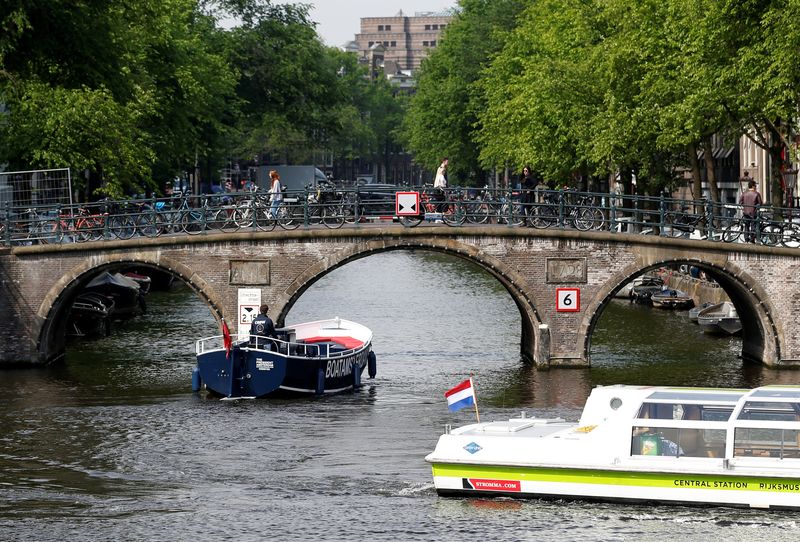They should just ban rental companies like AirBnB and ban short term rentals of homes. And if anyone puts a home up for rent on these sites the city should just eminent domain that property and turn it into social housing.
AirBnB is already severly restricted in several parts of Amsterdam (though a court ruling last year did overturn those restrictions in some neighbourhoods)
They should ban it completely, restrictions won’t help when they are easily circumvented
That’s basically impossible because there’s also legitimate good coming out of short-term rentals if done correctly so courts won’t let a total ban stand.
I think Berlin does it right: You can rent out your apartment while you’re away for a maximum of 90 days a year, unlimited if you live there with the guest, otherwise you need a hotel license which you won’t get for a residential apartment if there’s a housing shortage (and there is). In either case you’ll need to register with the city and display that register number in your listing on airbnb or elsewhere so any offering that doesn’t include one can get roflstomped by the authorities.
Dammit ! This is all because of Not Just Bikes 😤😂
Amsterdam has had an issue with overtourism long before NJB was making videos.
Yes, I know. The emoji mean it’s a joke.
I wonder if other Dutch cities will experience mass tourism after this move.
youve never been to rotterdam it would seem
I’d love to, but… visa restrictions prevent me from doing that.
It’s far less idyllic due to being bombed extensively during the war. There’s not really an historical center to speak of.
Oh God.
Still a cool city, though, but more modern.
Good to know. I’ll pay a visit as soon as I get my Schengen visa.
I imagine. If you restrict the supply the price will go up.
On a personal note I find it a bit sad, since I always wanted to visit there. Have some very distant relatives thought it would be fun to meet in person.
I don’t have relatives from the Netherlands (but I do have one from Belgium and Germany each), and yeah, I wanna come take a visit too. But as I said in another reply, those goddamn visas make it really hard.
You don’t have to stay in a hotel in the city of Amsterdam to visit Amsterdam.
The Netherlands is a small and densely populated country, so you can simply stay a town or city over and the city proper is only a short train or tram ride away.Last year my boyfriend and I visited the city with some friends coming over from America. We stayed in a rental in Amstelveen, and our friends stayed in a hotel in Zaandam.
I did not expect the article to turn into a sales pitch like that
Seems odd, to purposely restrict income. It would be worse for residents long term if necessary infrastructure is absent. Without new hotels, older hotels will become decrepid. There will be no appetite to refurbish where additional rooms cannot be added.
Surely it would have been better to build new hotels in areas that need an influx of construction or people. It would take time but should revitalise areas. If drug tourism is the problem, then make efforts tonstop that, not hamstring tourism in general.
In sating that, they may have already tried. I know they have already made restrictions on drug purchases for residents only a fewbyrsrs ago. Perhaps its not working. It just seems like this would be a verybslow fix, where the negative effects are also very slow and difficult to correct later.
I think you are missing the point why people take issue with overtourism.
Amsterdam isn’t a themepark, it’s a city where people actually live, grew up, have lives. And overtourism tends to hollow out what makes the city authentic. The houses get converted to AirBnB’s and hotels, the regular shops, pubs and restaurants can’t find regular customers anymore so start catering to tourists instead, etc. This results in a sort of Disneylandification of your city. It’s generally a nuisance to the inhabitants of a city.
Ultimately a city is for the people who live there, not the people who visit.Tourism can be good for the local economy, but there is only so much people are willing to put up with.
Edit: Also, old hotels are allowed to be renovated, as long as the number of sleeping places in the city doesn’t increase
A new hotel in Amsterdam can only be built if another hotel closes, if the number of sleeping places doesn’t increase, and if the new hotel will be better, for example more sustainable.
No, I get the point. I also realize that overtourisn is bad, by definition. Tourism is not inherently bad, though.
By artificially worsening tourism like this, it will lead to less tourists, butbalsona poorer experience for other tourists. This will lead to a reduction in investment in infrastructure, or amenities, like the Rijksmuseum. Locals benefit from the money tourists bring in more ways than just being a business that is tourist facing.
Yes, the hotels can renovate. But only to reduce capacity. The reason for hotels to renovate is competition or increase capacity. Without either, why bother. It will be less hassle and more profitable not to renovate. That’s my issue. Its inventivising decrepid hotels and bad infrastructure.
Tourism broadens the mind. We should look at more sustainable tourism and using tourism money as a tool to rejuvenate, rather than impinge.
Airbnbs often get blamed, but if hotels were sufficient and reasonable, airbnb becomes a poor proposition with its silly rules and extra hassle. We should appropriately tax and regulate what is now unregulated. Compact Eco friendly hotels in less congested areas encourages responsible tourism.
Its like bike culture, there. If you want people to move from cars, you don’t let the roads deteriorate to dangerous levels. You ensure there is alternative infrastructure like public transport and bicycle lanes.






